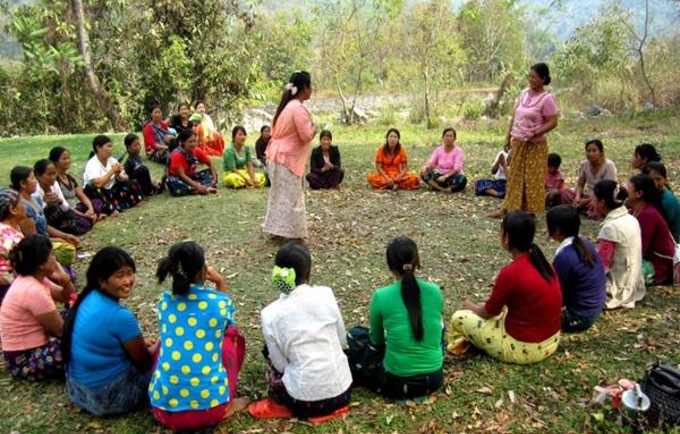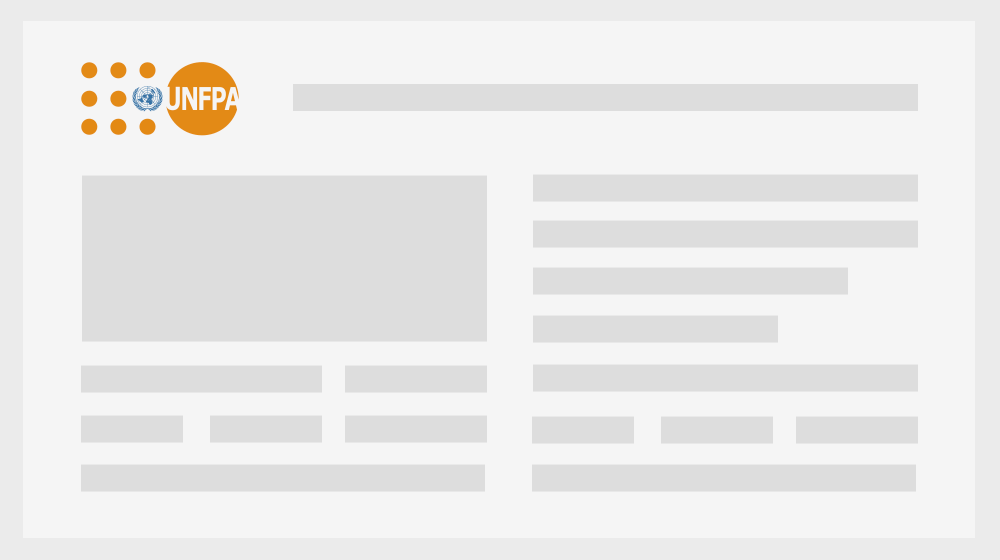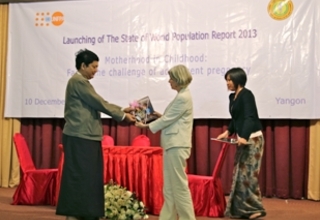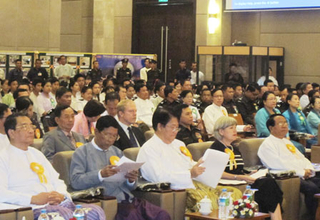Displaced women and adolescent girls are highly vulnerable to a number of threats including domestic violence, trafficking and lack of involvement in decision-making structures according to an assessment recently conducted by the United Nations Population Fund (UNFPA), the Danish Refugee Council (DRC) and the Kachin Women’s Association (KWA). The study was conducted across a number of camps for recently displaced people in northern Shan State.
The main concern identified by most of the displaced women who took part in focus group discussions or in individual interviews was limited access to sustainable livelihood opportunities in the camps. Displaced women are often the primary caretaker for their families, having had to assume the role of breadwinners for the family as a result of displacement, according to UNFPA, DRC and KWA. Some women also reported feeling unsafe due to the uncertainty and lack of information about plans for resettlement and returns; with some women also saying that they are concerned about not being consulted about the process.
According to discussions with displaced women domestic violence is prevalent in the camps. Negative coping mechanisms such as drug consumption among displaced men, were identified by the women as a contributing factor to this. In addition, the women raised the lack of privacy in shelters – that typically consist of one room with several family members living together in crowded conditions – as a concern. In addition, the assessment found that the proximity of the armed forces to the camps and the entry of soldiers into the camps increases the sense of fear and insecurity that women in the camps experience.
Adolescent girls at risk of trafficking and early marriage
Adolescent girls are exposed to particular protection risks, according to the findings. Cross-border trafficking for the purposes of domestic servitude, sexual exploitation and forced marriage was identified as a major protection concern by the women, according to UNFPA, DRC and KWA. The proximity to the border and lack of personal documentation are contributing factors which increase the risk. Early marriage of adolescent girls was also mentioned as a concern by the women.
Need for more support services for vulnerable women and girls in camps
While the local Ta’aung Women’s Organization (TWO) manage most of the response and prevention work for gender based violence (GBV) in the region, they are not operational in the camps in which the assessment was conducted. In the areas in which they are active, however, they provide some case management, awareness training, and sessions for women exchange and youth. The TWO also have two “safe houses” for survivors of violence in the region.
The assessment found that there are no GBV response services for displaced women and girls in the camps. This is exacerbated by a requirement that women and girls must have a letter certifying their status as displaced before being able to access lifesaving medical assistance. This can serve to delay or even deter access to services for survivors. The assessment also found that there is very limited understanding among displaced people about what human trafficking is and how to prevent it.
Based on findings, UNFPA, DRC and KWA make a number of recommendations, including providing psychosocial support for vulnerable women and girls, setting up youth support programmes in camps, and increasing and improving coordination among organizations working on anti-trafficking activities.
In response to the findings, DRC and KWA are running an anti-trafficking prevention programming through local women’s groups in Kutkai and Mandung. UNFPA and InterSOS are also planning to start comprehensive and multisectoral GBV response and prevention programming by building the capacity of local organizations and enhancing community-based protection mechanisms to respond to the needs of survivors of violence.




